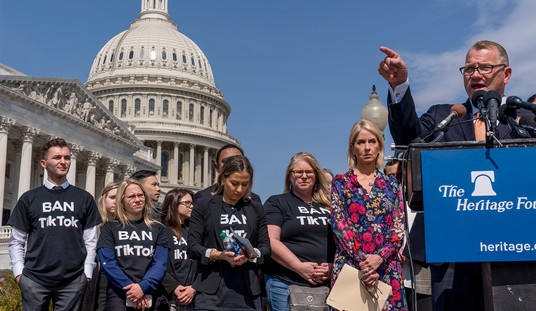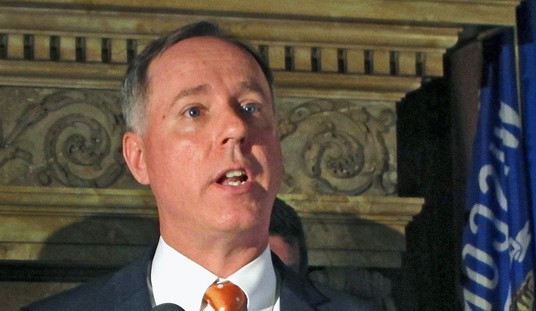There have been several reports out over the past few days about an evidently riled business-lobby community in the wake of the government shutdown and Congress’s flirtation with default, and that — especially in the event of another fiscal showdown this January/February — several major business groups are apparently thinking about pulling on their extra-establishmenty boots and doin’ work on behalf of what they see as more moderate and “business-friendly” candidates in next year’s pre-midterm primaries. Via the Financial Times:
In particular, attention is focusing on how to tilt the balance of power within the Republican party towards more moderate members who are less likely than staunch conservative Tea Party lawmakers to encourage brinkmanship over the budget.
“The shutdown exposed how high the stakes are. It is time to get back involved,” says David French, senior vice-president for government relations and chief lobbyist at the National Retail Federation (NRF), which represents many US retailers. …
Mr French said he did not believe the relationship was “profoundly damaged” and noted that on “95 per cent of the items” even the most ardent Tea Partiers and the business community were in agreement. Moreover, he said many of the disagreements were over “tactics” rather than policy and that Democrats shared some of the blame in the US political dysfunction.
But he added that if the business community was “particularly angry at the Tea Party, it is because they risked a whole lot in order to make a point I think any direct mail marketer could make with a first-class stamp”.
If more business groups do end up throwing their support behind what they see as more centered candidates, though, how much of an impact will it have? Politico points out some of the skepticism:
But despite the public grousing and aggressive posture of top executives and Washington operatives, there’s little evidence that trade associations and other business-minded groups will actually be able to move the needle in the 2014 election.
“The Senate Conservatives Fund, Heritage Action and FreedomWorks are really just eating the lunch of some of the normal business groups,” said Dan Mattoon, former executive director of the National Republican Congressional Committee. …
“Fundamentally, if the business community wants to be more engaged in the grass-roots politics, they have to have a permanent presence there,” Heritage Action’s Dan Holler said. “Arguably, there are local businesses at every level. They could be the conduit for that message. The problem is the policies big business groups are trying to sell don’t resonate outside of Washington.”
Advocates of pushing the primary envelope are looking largely to the Chamber of Commerce to lead the charge. The business group has long had one of the most active political operations in Washington and also is used to soliciting big checks from its members. …
Chamber President Thomas Donohue “is all in,” the source said.
But Donohue was coy on whether or not any of this is actually happening at a recent breakfast hosted by the Christian Science Monitor:
“We have no idea what we are going to have on the table. We still have to see who is running, we still have to see what happens on the next activity on the deficit. We still have to see what the circumstances are,” Mr. Donohue said. The chamber will begin making decisions about its congressional election activities in the first quarter of 2014, according to Bruce Josten, the chamber’s executive vice president for government affairs, who also spoke at the breakfast.
Donohue was asked about Senator Cruz, who argued that the House should tie a vote to fund the government with defunding of the Affordable Care Act, also known as Obamacare. “I don’t know Senator Cruz,” he said. “We are all getting to watch him. I sort of think about him as a tennis player. You know if you are going to rush the net all the time you better have a lot of motion to the left and the right. He hasn’t proved that to me yet.”
Hmmm. I suppose we’ll eventually see how all of this plays out next year, but going back to the Financial Times piece, I would merely highlight a couple of points made in their conclusion via a conversation with House Oversight Chairman Darrell Issa. Emphasis mine:
Darrell Issa, the Republican congressman who chairs the House oversight committee and is a former businessman, said business would be helped if John Boehner, the Republican Speaker, had 20 more Republican votes to help get legislation passed, which in turn would weaken the more hardline arm of the party.
But he warned that teaching a lesson to hardliners should not come at the expense of handing the House majority back to Nancy Pelosi, the Democratic leader in the lower chamber, whose policies on energy such as cap and trade, for instance, are seen as far more dangerous to business interests.
Mr Issa also pointed a finger of blame at the companies themselves, in a sign that frayed relations between business and Republicans cut both ways, saying they were often too focused on their narrow self-interest. “Microsoft, IBM, Archer Daniels – they do not have an ideology. They will give money to people who hurt 80 per cent of what they care about if it helps their bottom line,” he said.








Join the conversation as a VIP Member